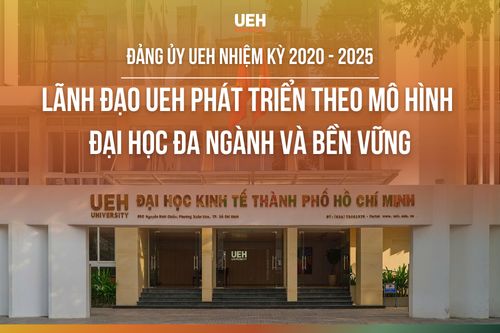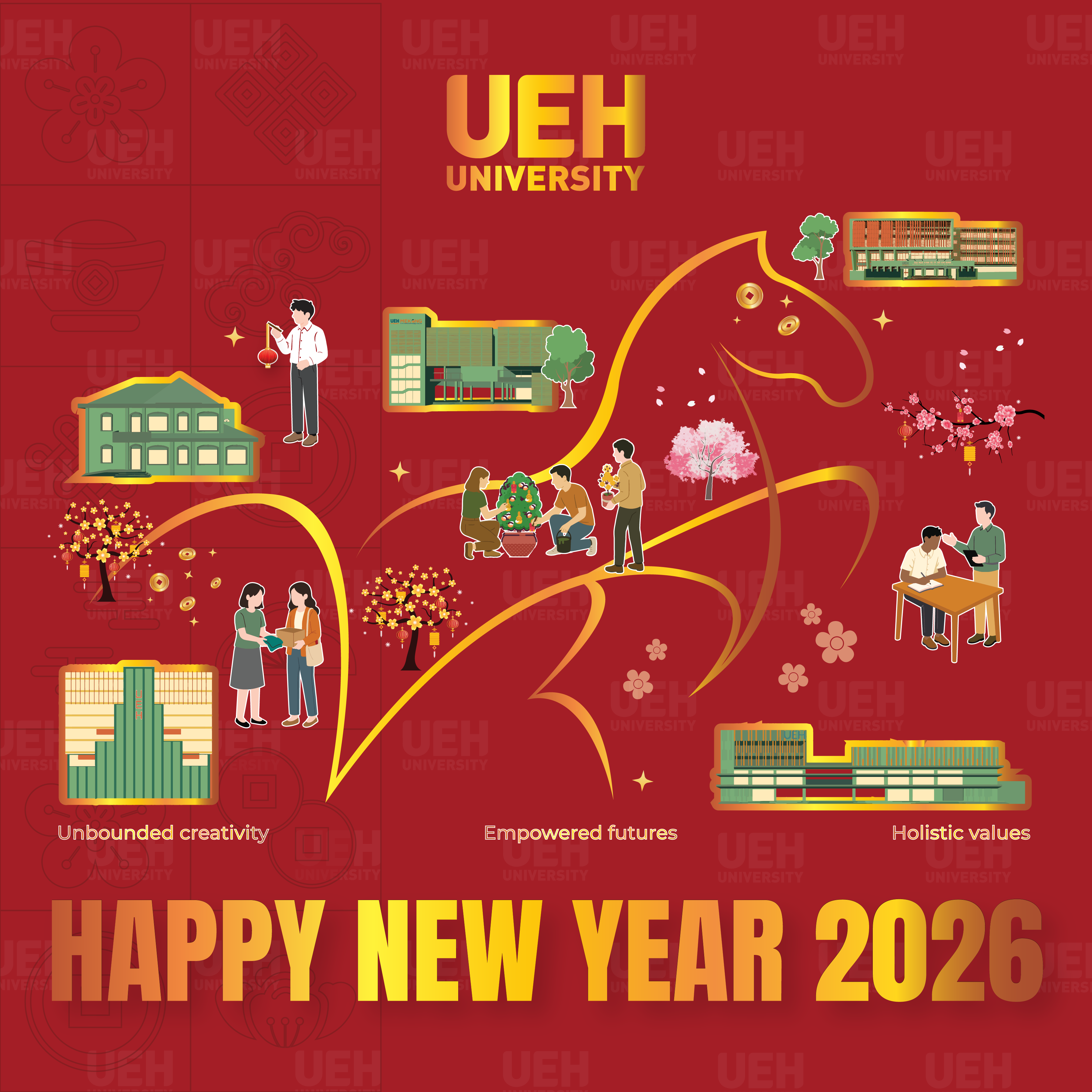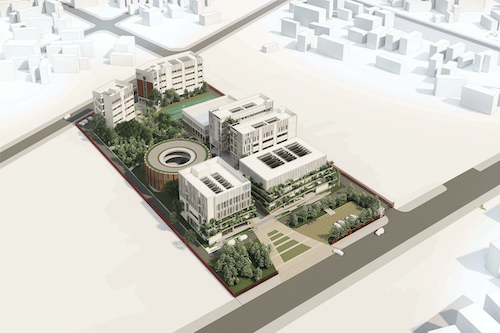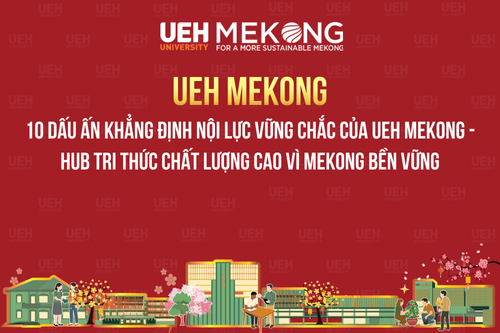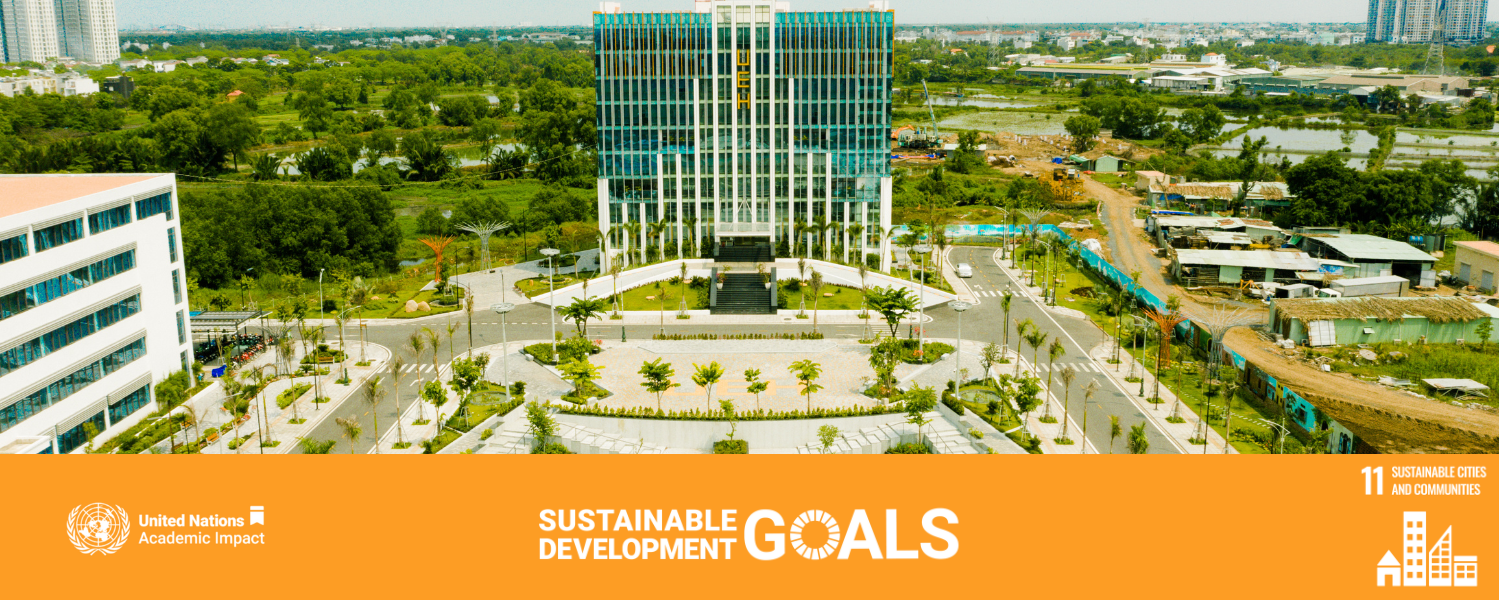
UEH appointed as Vice Chair of SDG 11 for Outreach and Partnership, 2025–2027 term
01 May, 2025
University of Economics Ho Chi Minh City (UEH), surpassing over 330 global candidates, has been selected as one of four global higher education institutions to lead the SDG 11 Hub - Sustainable Cities and Communities for Outreach and Partnership - under the United Nations Academic Impact (UNAI) initiative, 2025–2027 term. In this new role, UEH will lead efforts to connect and collaborate globally to promote sustainable urban and community development. This appointment marks a strategic milestone in UEH's ongoing journey toward internationalization and sustainable development.
SDG Hub Program under UNAI Initiative
SDG Hub Program, a global initiative launched by the United Nations under the United Nations Academic Impact (UNAI) framework, aims to connect higher education institutions worldwide in support of the 17 Sustainable Development Goals (SDGs) through three main pillars: (1) Education, (2) Research, and (3) Outreach and Partnership.
Each SDG Hub focuses on one of the 17 goals and is structured with a Chair or Co-Chairs, alongside three Vice-Chairs responsible for the aforementioned pillars. Institutions selected as SDG Hubs are recognized for their outstanding academic contributions to the advancement of the SDGs, with measurable impacts in social, economic, and environmental domains. UNAI also emphasizes interconnection between all SDG Hubs to form a global academic network dedicated to sustainable development.
UEH appointed Vice-Chair for Outreach and Partnership – SDG 11 “Sustainable Cities and Communities” (2025–2027)
UNAI has recently announced the SDG Hub leadership structure for the 2025–2027 term. During this announcement, representatives of each SDG Hub shared their strategic visions and plans for the next three years.
Following a rigorous selection process involving over 330 applications from global universities, the official SDG 11 Hub leadership is as follows:
Chair: De Montfort University, United Kingdom (Top 601+ THE 2025 Rankings)
Vice-Chair for Teaching and Education: University of Cologne, Germany (Top 157 THE 2025 Rankings)
Vice-Chair for Research: University of Vale do Rio dos Sinos - Unisinos, Brazil (Top 1201 THE 2025 Rankings)
Vice-Chair for Outreach and Partnership: University of Economics Ho Chi Minh City, Vietnam (Top 501+ THE 2025 Rankings)
UEH's Commitment to Advancing SDG 11
Since the 2021 restructuring, UEH has embraced the strategic vision of becoming a Multidisciplinary and Sustainable University by 2030. UEH implements five key pillars – Education, Research, Operation, Governance, and Community – aligned with the 17 United Nations Sustainable Development Goals (SDGs). Through this strategy, UEH aims to nurture a new generation of "Glo-cal" citizens – globally-minded individuals who act locally.
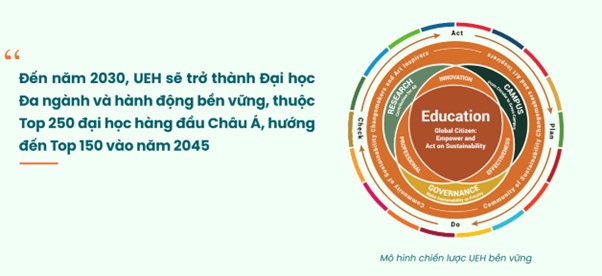
Over the past five years, UEH has actively operationalized SDG 11 through the following initiatives:
Education: Sustainable development knowledge has been integrated as a mandatory subject and embedded across multiple academic programs. Specialized training programs have been launched as follows: Bachelor of Architectural and Urban Design, Bachelor of Corporate Sustainability and Environmental Management, Master of Smart City and Innovation Management, Master of Environmental Economics and Management, Master of Corporate Sustainability and Environmental Management.
Research: Research is guided by the 17 SDGs. UEH has established multiple research centers focused on sustainable development as follows: the Institute of Smart City and Management (ISCM), Sustainable Finance Institute (SFI), Health and Agricultural Policy Research Institute (HAPRI), and Institute for Regional Development Research and Consulting (IRDRC). These institutions bring together experts to conduct interdisciplinary research projects and organize international conferences on topics like smart transportation, smart planning, smart agriculture, multi-field integrated and so on domestic and international.
Operation, Governance, and Community: Notable projects include Smart City Living Lab – a co-creative platform for urban innovation; Living Lab Green Campus an eco-friendly space transformation initiative; and ArtTech Hub co-creation platform aims to connect Art and Technology stakeholders to address contemporary issues, aligned with sustainable goals and actions.
UEH’s appointment as Vice-Chair for Outreach and Partnership in the SDG 11 Hub is one strong recognition of their effective actions and deep commitment to the UN's sustainable development agenda.
“With a strong commitment to tangible and effective action, UEH, in our new role as Vice-Chair for Outreach and Partnership of SDG 11, will continue to play a pivotal role in leading global efforts for sustainable development within higher education – both internationally and as a pioneer in Vietnam. Especially with a network of 500 leading corporate partners, over 240,000 alumni, and more than 200 international collaborators, UEH will serve as a central hub for multi-stakeholder co-creation toward a sustainable future” - shared Assoc. Prof. Dr. Bui Quang Hung, Vice President of UEH.
UEH’s presence in the SDG Hub network not only affirms its internationalization strategy but also provides an opportunity to amplify knowledge dissemination, to promote sustainable values, and to foster cross-sectoral partnerships for a greener, fairer, and more livable future. This is a pivotal milestone in UEH’s global journey.
Discover more information regarding SDG Hub Program: Here
--------------
ADDITIONAL INFORMATION
* In terms of United Nations Academic Impact (UNAI):
Launched in November 2010, UNAI is an initiative that engages higher education institutions in supporting and contributing to the realization of United Nations goals and mandates, including human rights promotion, educational access, sustainability, and conflict resolution.
More information: www.un.org/en/academicimpact
*In terms of UEH’s Sustainable Development Strategy:
UEH implements sustainability across five core pillars:
Education: UEH upholds lifelong learning and a Glocal (global and local) training foundation through a wide range of short-term and long-term courses for various groups, contributing to SDG 4 – Quality Education. Learners are equipped to make well-informed, balanced, and holistic decisions. Concurrently, UEH emphasizes providing a strong foundational understanding of sustainable development as a mandatory subject for all programs, enabling students not only to understand but also to create positive change for the environment and society toward sustainable development. In recent years, UEH university has launched 13 new interdisciplinary programs aligned with modern trends and future workforce needs as follows: Technology and Innovation, Digital Communication and Multimedia Design, Accounting with Integrated International Professional Certifications, Financial Technology (Fintech), Marketing Technology (Martech), Digital Business, Robotics and Artificial Intelligence Engineering, Logistics and Supply Chain Technology Engineering (Logtech), Information Security, Information Technology, Computer Science, ArtTech, and Intelligent Control and Automation. Approximately 100 extracurricular educational activities, competitions, seminars, and events related to sustainable development, environmental protection, green technology, green economy, green university, circular economy, and sustainable urban development have taken place.
Research: UEH has produced over 500 research publications by Faculty and staff, and hundreds more by students, related to green lifestyles and the circular economy, contributing to SDG 7 – Affordable and Clean Energy, SDG 12 – Responsible Consumption and Production, SDG 13 – Climate Action, and SDG 14 – Life Below Water.
Governance: Following the consistent principles of "Democracy – Transparency – Equity", all UEH members are treated equally, ensured their rights, and regularly involved in decision-making, policy implementation, and school-wide activities. In addition, UEH integrates sustainability practices into university governance and promotes a green culture as a part of daily operations, contributing to SDG 12 – Responsible Consumption and Production, SDG 15 – Life on Land, and SDG 16 – Peace, Justice and Strong Institutions.
Operation: Through the UEH Green Campus initiative, UEH university has reduced 5 tons of landfill waste by thoroughly implementing waste separation at source. This helps extend the life cycle of waste and encourages responsible consumption in alignment with SDG 12 and SDG 15.
Community: UEH actively connects with organizations and communities focused on sustainability to share knowledge and collaboratively address environmental challenges. Notably, the International Forum on Sustainability (IFS) has made significant contributions to SDG 17 – Partnerships for the Goals.
To maintain and to advance its internationalized sustainable university strategy, UEH annually integrates the 17 SDGs into all actions. Accordingly, sustainability criteria from three global university rankings – QS Sustainability, THE Impact, and UI Green Metrics – are consolidated and assigned as annual objectives (OKRs) for each unit within the university.
Discover more information regarding UEH’s actions toward realizing the 17 SDGs on our website.
News and photos by: Sustainability Project Committee, Communications and Partnership Development Department



